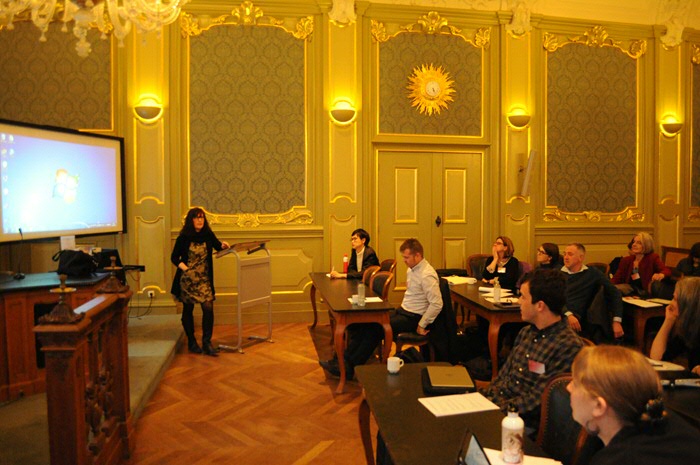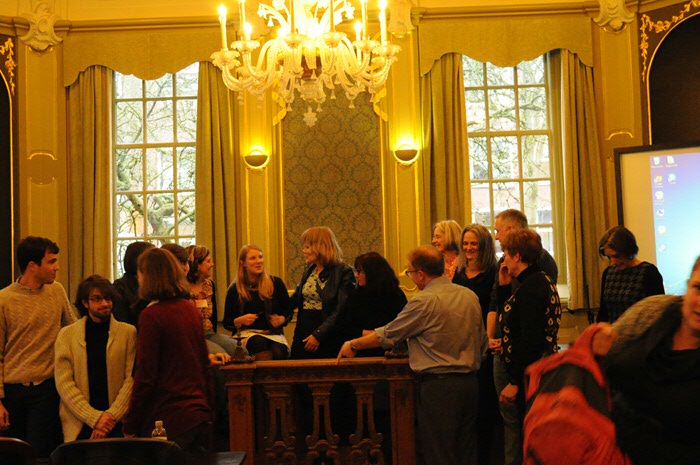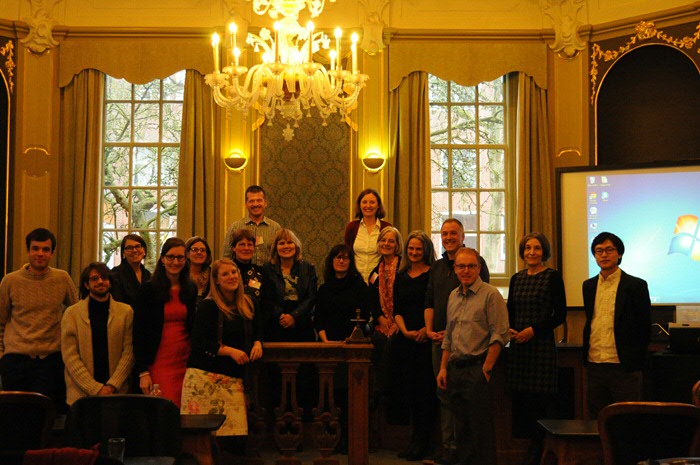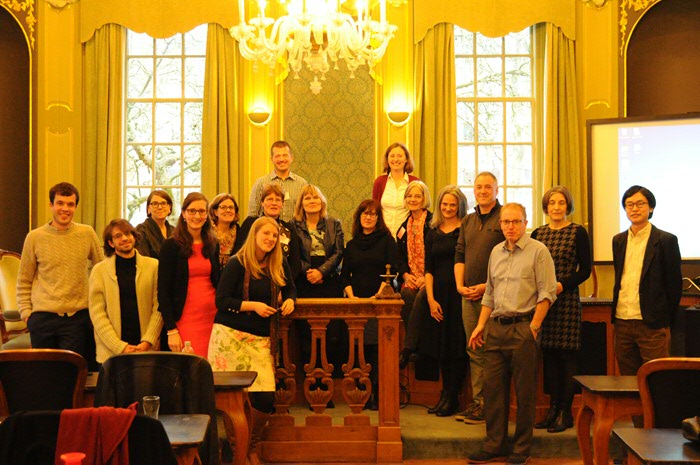Early Modern Women on Metaphysics, Religion and Science
| When: | Mo 21-03-2016 |
| Where: | Faculty of Theology and Religious Studies, Oude Boteringestraat 38, Groningen |

Conference 21-23 March 2016, University of Groningen
During the early modern period (c. 1600-1800) women were involved in many debates that tangled together metaphysics, religion and science. The women included figures such as Margaret Cavendish, Emilie Du Châtelet, Princess Elisabeth of Bohemia, and Damaris Cudworth Masham. The debates surrounded issues such as atomism, determinism, motion, mind-body causation, mechanism, space, and natural laws.
This recent conference discussed many of these issues. Below is a conference report and a selection of photographs.
Conference Report (English) *
Marissa Herder, Conference Assistant, a Masters student at the University of Groningen
The conference ‘Early Modern Women on Metaphysics, Religion and Science’ took place from the 21st until the 23rd of March at the Faculty of Theology and Religious Studies at the University of Groningen. The conference was organized by Emily Thomas as part of her NWO Veni project held at the University of Groningen, which aims to emphasise the work of seventeenth and eighteenth century women philosophers neglected in the history of their discipline. The speakers came from all over the world, and around thirty people attended the conference, a high turnout for this specialist topic.
The conference started on the 21st of March with a presentation by Andrew Janiak from the University of Duke on the topic of Émilie Du Châtelet’s metaphysics of gravity. Karen Detlefsen from the University of Pennsylvania presented on Margaret Cavendish’s ideas on laws and order. The first keynote speaker of the conference, Susan James from the University of Birkbeck, spoke about the role of hermaphrodites in Margaret Cavendish’s work on nature and art. Frederique Janssen-Lauret from the University of Nottingham, who presented via Skype, discussed conflicting ideas of Princess Elisabeth of Bohemia’s work on mind, and argued for an interpretation as naturalistic dualist. Katherine Brading from the University of Notre Dame spoke about Émilie Du Châtelet and the problem of bodies. The day was closed by Patricia Sheridan from the University of Guelph with a presentation on Catharine Trotter Cockburn’s metaphysics of moral fitness.
The first speaker on the 22nd of March was Deborah Boyle from the University of Charleston. She spoke about Margaret Cavendish’s ideas on the eternity of the world. Emily Thomas talked about how creatures maintain their identities over time in Anne Conway. The second keynote speaker of the conference was Jacqueline Broad from Monash University. She talked about Mary Astell’s Malebranchean concept of the self. David Cunning from the University of Iowa spoked about Margaret Cavendish’s ideas on metaphysics and God, after which Mirjam de Baar from the University of Leiden presented on Anna Maria van Shurman and Antroinette Bourignon’s ideas about religion and science. Lastly, Aaron Wells from the University of Notre Dame talked about the ideas of Émilie du Châtelet on the fundamentality of change.
On the last day of the conference, Tom Stoneham from the University of York gave a presentation about the poise and balance of nature according to Margaret Cavendish. The conference was closed by the third keynote speaker, Sarah Hutton from the University of York, who spoke about goodness in Anne Conway’s metaphysics.
The conference went well: it provoked some extremely lively discussion among the participants, many of whom amicably disagreed with one another; and it has opened many doors to future debate.
A collection partly based on the conference, Early Modern Women on Metaphysics, is under contract with Cambridge University Press, edited by Emily Thomas.
*A Dutch version of this conference report is forthcoming in the journal Tijdschrift voor Theologie.
Photographs of Speakers and Participants




